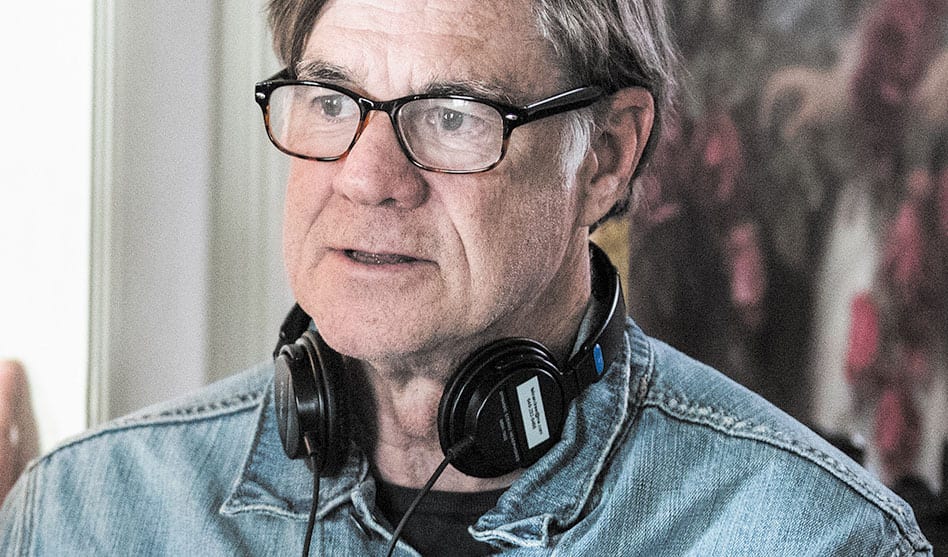Edgy queer filmmaker Gus Van Sant discusses his dark comedy about alcoholism and quadriplegia ‘Don’t Worry, He Won’t Get Far on Foot’
Gus Van Sant is the independentiest of directors who still have legit Hollywood cred. He has made Oscar-winning hits like Good Will Hunting and Milk, as well as the wickedly perverse To Die For and the controversial shot-for-shot remake of Psycho. But his cult status owes in large part to his micro-budget outsider films about people living on the fringe of society: My Own Private Idaho, Drugstore Cowboy, Elephant, Gerry, Last Days.
His latest film is yet another darkly comic look at what should be difficult subject matter: A biopic of quadriplegic alcoholic cartoonist John Callahan (played by Joaquin Phoenix) named Don’t Worry, He Won’t Get Far on Foot. (The title itself is a cruel riff on its protagonist’s use of a wheelchair; it’s now playing in Dallas.) Because it’s Van Sant (he’s directed two actors to Oscar wins), his calls get returned; he was able to assemble a high-powered cast that in addition to Phoenix includes Rooney Mara, Jack Black and Jonah Hill. The film genre-surfs between addiction-recovery melodrama to biography of a disabled man to AIDS crisis drama, all of which is indelibly Gus Van Santy.
We chatted with the gay filmmaker about his familiarity with movies dealing with alcoholism, his friendship with Callahan and the film’s most surprising casting.
— Arnold Wayne Jones
Dallas Voice: There’s a tradition of films about addiction; were you familiar with any of them before you started working on Don’t Worry? Gus Van Sant: I think there are three of them about going through the steps of AA that I was aware of; I saw the Sandra Bullock movie, 28 Days; I don’t know if I ever saw Clean and Sober [with Michael Keaton], but I was gonna to go watch that one.
You obviously appreciate older Hollywood films — you did a remake of Psycho. Had you seen the classics The Lost Weekend and Days of Wine and Roses? I know of them — those two are like major alcoholism movies. Studios tend to use them as models. But I thought it was working independently, so I was more following John [Callahan] and his experiences.
So did you know Callahan personally? I didn’t know him well [for a long time], but I did sort of know him from around Portland; it wasn’t until we started the project [that I got to know him better].
John died in 2010, so that’s a while back… He died during the writing [of the script]. We were working on a [draft] starting back in 1997.
Speaking of the script, the storytelling is pretty non-linear, though never confusing; was that how it was written or done in the editing? That was in the scriptwriting. I think when I started writing it a few years ago, I was [more interested in] collecting those stories in the book that I found most interesting and later [connected them]. I was always a big fan of Slaughterhouse 5, Kurt Vonnegut’s book [which jumps around its timeline].
Jonah Hill plays Donny, John’s AA sponsor, as this very gay, very droll rich boy and important to John’s development; was he a real person? He was based on a real character … he’s in [Callahan’s autobiography] but he gave us a lot more information about Donny [during the writing]. The part about Donny dying was not in the book which came out before Donny died but John visited him and went to his funeral.
How did you end up casting him? When we were looking for someone to play that character, I checked with Joaquin. There are certain actor like Jonah who if you see them do enough amazing things, you know they can do almost anything, and he has a comedic background [which I liked], so we just offered it to him. I think his development of the character was partly based on people he knew or had worked with who had a lighter voice
Frankly I didn’t even realize it was Hill for the first 20 minutes or so. [Chuckles]. Yeah.
















